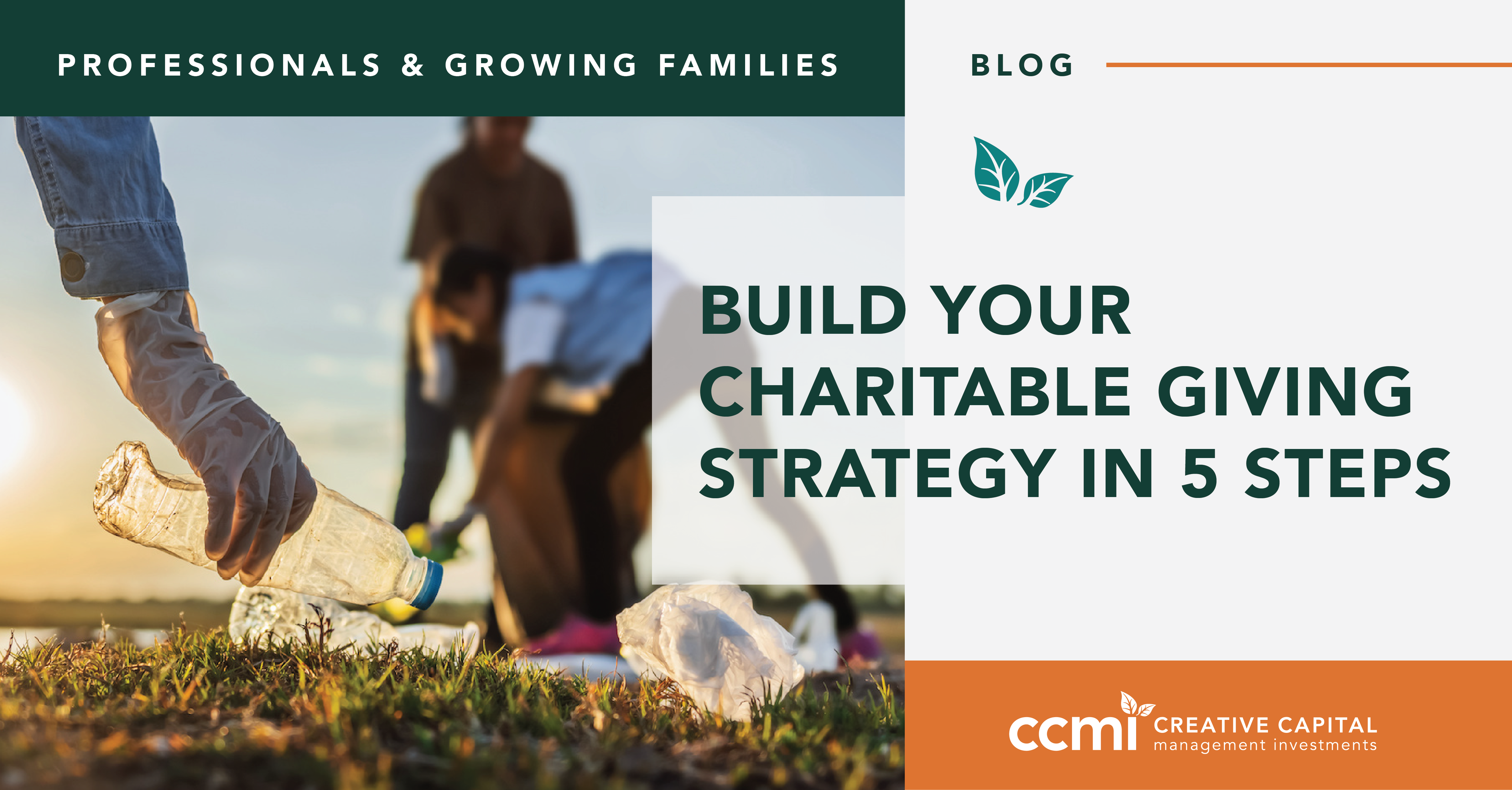Supporting worthwhile organizations and causes through charitable giving is a goal many clients share in their personal financial plans. Perhaps you’re interested in gifting around the holiday season or establishing a year-round, ongoing commitment. It’s beneficial to consider the factors that will help you build a charitable giving plan that fulfills your philanthropic goals and is optimal for your financial and tax situation. We’re sharing five steps you and your family can discuss to begin developing a strategic and impactful charitable giving approach to carry on your family legacy.
#1 Identify the Charity or Causes You Want to Support
You may already be familiar with the charity or charities you’d like to support. It’s helpful to connect with the organization and determine the best way to show your support; is there a financial need or would other resources propel their efforts more effectively, such as volunteering? Further, will a donation to the national entity or local chapter be most beneficial to the organization’s mission? Ongoing conversations and research like this will help you develop your approach, especially if you want to give to multiple groups while best supporting each organization’s needs. If you need help identifying a charity, you can browse a directory of organizations in San Diego or your community at greatnonprofits.org or contact us for a list of causes CCMI supports.
#2 Determine How Much You Will Give
How much you will give is really a discussion of the impact your donation will have on your target charity or charities. A larger, one-time donation may significantly advance the mission of a single organization, while several smaller donations may help reach more groups in need. Your financial situation, connection to the cause, or the organization’s needs may help determine how much you give. Further, each organization operates differently. One group may prefer an ongoing commitment over a lump sum, while another may have an upcoming event or campaign, in which case a more significant donation may be integral. We’re happy to weigh these factors with you and explain how they’re closely related to other areas of your charitable giving plan, which we’ll discuss.
#3 Choose a Giving Method
Your giving method involves how you will give to meet the organization’s and your individual needs. There are several ways to provide a financial donation to a charity, including cash, appreciated stocks, donor-advised funds, and more. However, some strategies have more advantages than others. For example, a cash donation may not provide as many personal benefits as a stock gift. Factors to consider when determining the way you’ll give include tax planning to avoid capital gains, estate planning and the fundamental goal of your giving, which may have little to do with your personal finances.
#4 Decide How Often You’ll Give
The frequency at which you give is closely related to the amount you plan to donate and your individual situation. For example, you may consider the tax benefits of giving all at once, which could also be an opportunity to fund a larger initiative, such as the construction of a building or a matching campaign, known as a seed gift. On the other hand, if tax planning is less of a concern, you may consider a pledge over an extended period, which may make more of an impact. For example, when a charity can rely on an annual donation of $5,000 per year over ten years, it can better budget its income and plan for the future.
The time of year you give is another factor to consider. Your giving could coincide with the holiday season or the organization’s budgeting cycle. Additionally, it may be helpful to consider a written agreement outlining your giving intentions for accountability and estate planning purposes.
#5 Consider Non-Financial Support
“Time or treasure?” is a question to consider in your giving strategy. Seeing your dollars at work is always fulfilling but what if you have limited funds or the organization needs other resources? Sharing your time and skills through volunteering, joining a board, or chairing a committee can give you an active role in implementing change and possibly an even more rewarding experience overall. Consider how involved you would like to be, what you can and are willing to commit, and if a monetary or time donation is a contribution you’re more likely to sustain.
Using excess cash flow to positively affect your community or a cause dear to you is a rewarding privilege and one we’re happy to help you pursue. We encourage you to contact our team to discuss your goals, help facilitate family conversations, and get assistance in carrying out your charitable plans.
CCMI provides personalized fee-only financial planning and investment management services to business owners, professionals, individuals and families in San Diego and throughout the country. CCMI has a team of CERTIFIED FINANCIAL PLANNERTM professionals who act as fiduciaries, which means our clients’ interests always come first.
How can we help you?






